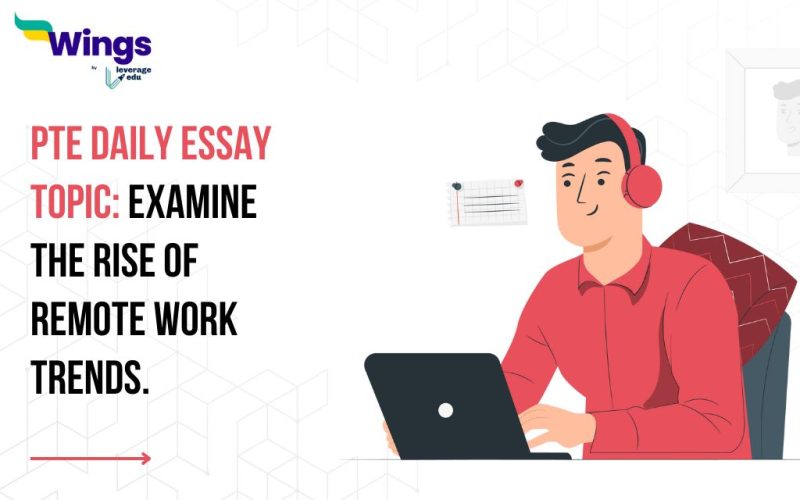Q. Examine the rise of remote work trends. What are the advantages and challenges of working remotely, and how will it impact traditional office environments?
Ans. The rise of remote work has become a defining trend in the modern workforce. Fueled by technological advancements and a growing desire for flexibility, remote work arrangements are rapidly transforming the traditional office environment. This shift offers a multitude of advantages for both employers and employees but also presents distinct challenges that need to be addressed.
On the positive side, remote work fosters a better work-life balance. By eliminating commutes, employees gain valuable time and energy, allowing them to attend to personal needs and potentially improve well-being. Additionally, remote work empowers individuals with greater autonomy. They can design their work schedules around peak productivity times and create a work environment conducive to their needs, fostering a sense of ownership and potentially boosting morale. Furthermore, companies can leverage remote work to tap into a wider talent pool, unconstrained by geographical limitations. This expands the possibilities for hiring the most qualified individuals, regardless of location. Finally, remote work offers significant cost savings for businesses. Reduced office space translates to lower overhead costs, and a geographically dispersed workforce can benefit from varying tax structures.
However, the remote work revolution is not without its hurdles. Maintaining clear communication and fostering collaboration can be difficult in a virtual setting. The lack of physical interaction can lead to feelings of isolation and hinder team spirit. Additionally, establishing boundaries between work and personal life can be a challenge for remote workers. The constant presence of work in one’s living space can lead to burnout and hinder the ability to truly disconnect. Furthermore, employers face the challenge of ensuring accountability and measuring productivity in a remote environment.
In conclusion, the rise of remote work is a significant shift with both advantages and challenges. As this trend continues, traditional office environments will likely evolve to accommodate a hybrid model, combining the benefits of in-person interaction with the flexibility of remote work. Companies that embrace clear communication strategies, invest in collaboration tools, and prioritize employee well-being will be best positioned to thrive in this new work landscape.
Are you preparing for the PTE Exam? Check out the blogs below to bolster your chances of securing better scores in the PTE exam.
| Related Blogs | ||
| PTE Exam Pattern – How to Crack the … | PTE – An Exam That Takes You To Places | PTE Writing Essay-Questions Samples |
| PTE Syllabus – Know It Inside Out | PTE Exam: Everything You Need To Know | PTE Exam Pattern for Academic and General |
Download the Leverage App today.


Need help preparing for PTE? Check out the best PTE preparation courses in the market offered in a live training environment by trusted educators. If you want to help studying abroad, call 1800572130.


 One app for all your study abroad needs
One app for all your study abroad needs












 60,000+ students trusted us with their dreams. Take the first step today!
60,000+ students trusted us with their dreams. Take the first step today!